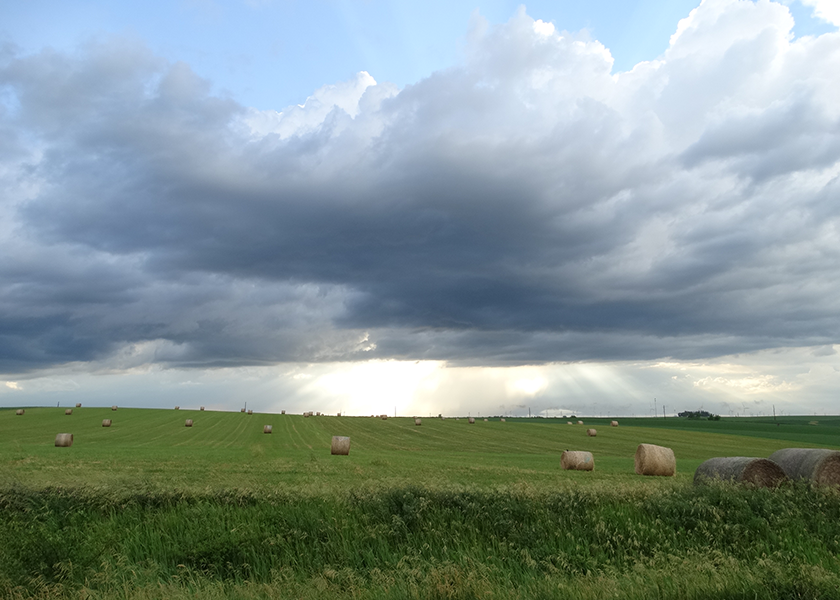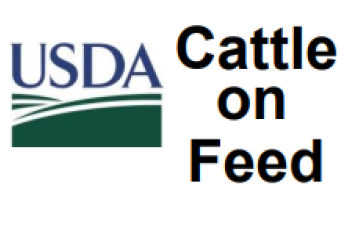Evening Report | January 30, 2024

Check our advice monitor on ProFarmer.com for updates to our marketing plan.
Livestock producers: Extend cash feed coverage... Corn and soybean meal futures are trading at value levels and hinting at potential short-term lows. With our feed coverage running out at the end of the month, we advise livestock producers to extend corn-for-feed and soybean meal needs another four weeks in the cash market through February. Be prepared to more aggressively extend coverage if corn and soymeal futures signal major price bottoms.
Ripple effects of shipping disruptions on U.S. agriculture... A study from Sandro Steinbach and Yasin Yildirim of North Dakota State University and Xiting Zhuang of the University of Connecticut exams the current challenges in global shipping and their direct impact on U.S. agriculture. In Farmdoc they noted:
“Global agricultural trade, particularly that of key commodities like corn and soybeans, depends heavily on the reliability of major shipping lanes. Recent environmental and geopolitical crises at the Panama Canal and in the Red Sea have brought to the forefront the vulnerabilities inherent to these critical trade routes. The shipping disruptions, marked by the Panama Canal’s worst drought in history and heightened military tensions in the Red Sea due to the attacks of the Houthi terrorist group on commercial shipping lanes, have caused substantial logistical challenges and economic repercussions... These issues have not only underscored the fragility of key maritime routes but also have had a cascading effect on global agricultural supply chains, having the potential to disrupt 2024 U.S. agricultural exports severely. The potential implications for exporters of major crops like corn and soybeans are considerable, encompassing increased transportation costs, potential delivery delays, and a broader reassessment of trade strategies. This situation highlights a critical challenge for global trade, which is the increasing interdependence of environmental stability and geopolitical disruptions and their impact on the flow of agricultural commodities, which are pivotal for U.S. farmers and ranchers.”
The Farmdoc article concludes: “The crises in the Panama Canal and the Red Sea have highlighted the vulnerabilities of U.S. agricultural trade to environmental and geopolitical factors. These disruptions have increased transportation costs, prolonged transit times, and potential market losses. It is increasingly clear that the development of sustainable and flexible supply chain solutions is not just advantageous but essential for maintaining and enhancing the flow of U.S. agricultural trade. The U.S. agricultural sector must adopt more robust strategies. Investing in diversified trade routes, alternative markets, and innovative logistics solutions will be key. Understanding the interconnected nature of global supply chains and the external factors that influence them is vital. As the environmental and geopolitical landscapes evolve, the capacity to anticipate, adapt, and innovate is crucial to ensure the continuity and success of U.S. agriculture in an increasingly dynamic and challenging global market environment.”
SAF expected to play a significant role in decarbonizing aviation, but production limited... Sustainable aviation fuel (SAF) accounted for less than 0.1% of what is needed for 2050 net-zero targets in 2022. Co-processing, alternative feedstocks, and emerging pathways like eFuels are seen as potential solutions to boost SAF production. Co-processing allows refineries to convert renewable feedstocks into biojet fuel economically. Existing refineries are upgrading to produce SAF from various pathways, including Fischer-Tropsch (FT) and hydrocracking.
While eSAF holds promise, it is currently more expensive than traditional SAF due to the high cost of green hydrogen. Financial incentives, regulatory support and investment in research and development are essential to facilitate the adoption and commercialization of eSAF, according to its proponents.
By the end of 2022, eight U.S. refineries had completed conversions to produce Renewable Diesel or SAF, or a combination. A year later, an additional six U.S. sustainable fuels plants joined their ranks.
IMF: ‘Clouds are beginning to part,’ global ‘soft landing’ in sight... The International Monetary Fund (IMF) edged its forecast for global economic growth higher for this year, upgrading the outlook for both the U.S. and China and citing faster-than-expected easing of inflation. IMF said a “soft landing” was in sight, but overall growth and global trade remained lower than the historical averages.
IMF forecasts global GDP of 3.1% in 2024, up 0.2 point from its October projection. It expects economic growth to rise to 3.2% in 2025, unchanged from its prior outlook. Global trade was expected to expand 3.3% in 2024 and 3.6% in 2025, well below the historical average of 4.9%, with gains weighed down by many trade restrictions. IMF stuck with its October forecast for headline inflation of 5.8% for 2024 but lowered the 2025 forecast to 4.4% from 4.6% in October. Excluding Argentina, which has seen a surge in inflation, global headline inflation would be lower.
IMF raised its U.S. GDP forecast 0.6 point to 2.1% for this year. It sees U.S. economic growth slowing to 1.7% in 2025. IMF credited fiscal support and consumer spending for the upgrade.
The euro zone got a downgrade, with growth now expected at 0.9% in 2024 and 1.7% in 2025. The biggest European economy – Germany – is expected to see minimal GDP growth of 0.5% in 2024 instead of the 0.9% forecast in October.
China’s GDP was expected to grow 4.6% in 2024, an upward revision of 0.4 point from October and 4.1% in 2025. The boost reflected significant fiscal support from Beijing and a less-severe-than-expected slowdown stemming from the property sector.
Cattle inventory expected to decline 1.8%... Analysts polled by Urner Barry expect USDA to show the U.S. cattle herd 1.8% below year-ago as of Jan. 1 at roughly 87.7 million head in Wednesday afternoon’s Cattle Inventory Report. If realized, that would be the smallest herd dating back to 1951. The annual calf crop is expected to be down 2.4% to just under 33.0 million head, which would mark the lowest calf crop on record since 1941. Beef replacement heifers will be a key category, as pre-report estimates range from a decline of 2.7% to a rise of 4.1% from the year-ago level.
|
Cattle Inventory |
Average estimate |
Range of estimates |
|
All cattle/calves on Jan. 1 |
98.2 |
97.9 – 98.7 |
|
Cow/heifers that have calved |
98.0 |
97.7 – 98.4 |
|
Beef cows |
97.5 |
97.2 – 97.9 |
|
Dairy cows |
99.6 |
99.4 – 100.0 |
|
Heifers 500 lbs.+ |
98.5 |
97.8 – 99.1 |
|
Beef heifer replacements |
99.7 |
97.3 – 104.1 |
|
Dairy heifer replacements |
99.7 |
97.8 – 101.4 |
|
Other heifers |
97.6 |
95.9 – 98.7 |
|
Steers 500 lbs.+ |
98.2 |
97.2 – 99.0 |
|
Bulls 500 lbs.+ |
98.2 |
97.1 – 99.8 |
|
All calves 500 lbs. and under |
98.1 |
97.7 – 98.7 |
|
Calf crop |
97.6 |
96.7 – 98.1 |
House Republicans are moving forward with a bipartisan tax package despite opposition... Speaker Mike Johnson (R-La.) indicated the bill would likely be advanced through suspension, requiring two-thirds of lawmakers’ support to pass while avoiding procedural obstacles. The legislation, drafted by Ways and Means Committee Chair Jason Smith (R-Mo.) and Senate Finance Committee Chair Ron Wyden (D-Ore.), has garnered bipartisan support but faces challenges from both ends of the political spectrum. Some Democrats believe it falls short in expanding the child tax credit, while some Republicans are concerned about the bill's impact on tax credit recipients and its potential increase in government spending.
The use of the suspension procedure has caused concerns among Freedom Caucus members, as it limits opportunities for amendments and can deny rank-and-file lawmakers the chance to voice their concerns. Some members are contemplating votes against other rules in protest.
Gas stoves pass energy efficiency standards, avoiding U.S. ban... The Department of Energy announced the majority of gas stoves currently available on the market meet President Joe Biden’s new energy efficiency standards. This means gas stoves will not be banned in the U.S. in the near future. The announcement comes after a controversial statement by a Biden administration official a year ago, suggesting the Consumer Product Safety Commission could consider banning gas stoves due to their association with childhood asthma. The agency revealed that 97% of gas stoves already conform to the new standards, which are designed to reduce harmful carbon dioxide emissions. Additionally, at least 77% of smooth-top electric ranges also meet these new energy efficiency standards.
Biden administration reinstating sanctions on Venezuela... This decision reverses the lifting of some sanctions that occurred in October and comes after Venezuela barred a key opposition presidential candidate, Maria Corina Machado, from running in the upcoming elections. Initially, the U.S. had eased sanctions in response to Venezuela’s commitment to hold elections.
The rollback of restrictions on Venezuela’s oil industry is now at risk of expiring due to the recent Venezuelan court ruling and the arrest of several opposition members. The State Department has given U.S. entities conducting transactions with the state-owned gold miner Minerven until Feb. 13 to wind down those transactions.
The Biden administration has warned that if Machado and other opposition figures are not allowed to run in the elections, restrictions on the oil industry will be reimposed on April 18. Additionally, the administration is considering additional measures in response to the situation in Venezuela.






